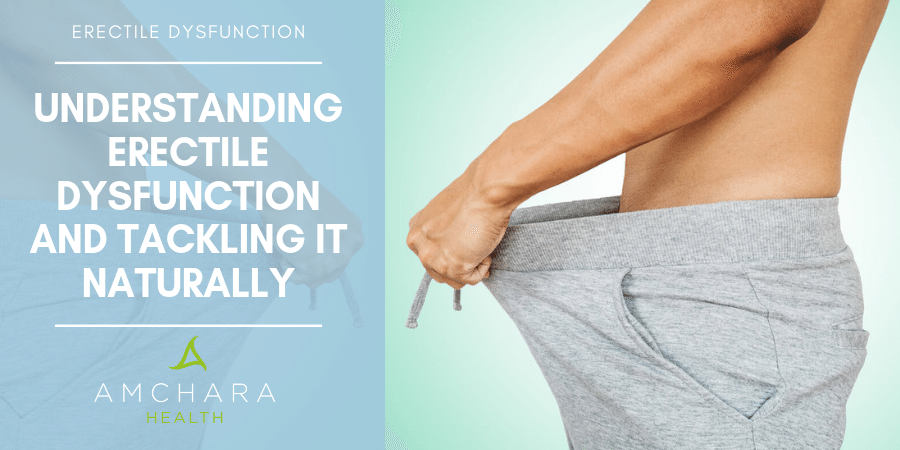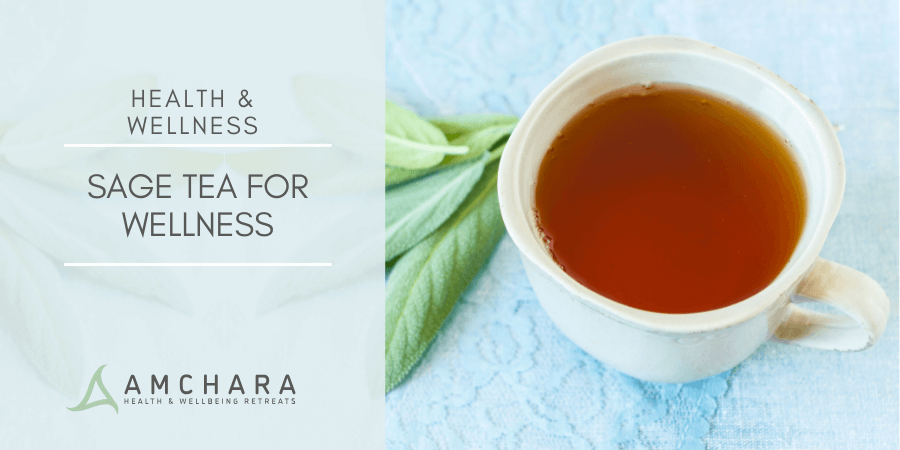Men can be reluctant to open up and talk about their health or feelings.
One sensitive subject that is often swept under the carpet is erectile dysfunction. Also called impotence, it is surprisingly common.
We always take an evidence-based approach and aim to give you insightful information to help you on your journey to optimal health.
In this article we are going to take a look at how common erectile dysfunction is, what may play a role and also how it may be tackled with natural solutions.
What is erectile dysfunction?
Whether it is called erectile dysfunction, impotence or brewer’s droop, issues with getting or maintaining an erection can affect sexual performance.
This can have a knock on effect, impacting confidence and self-esteem and may lead to an increase in stress, anxiety and depression.
For some men this may manifest as frustration, irritability and anger and relationships may suffer as a consequence.
Are some men more at risk than others?
It seems that erectile dysfunction is incredibly common, and it is thought that most men will experience an episode at some stage in their lives.
There is a higher incidence in men between the ages of 40 and 70 and almost half of men in this age group experience erectile dysfunction.
Having said that, younger men are also at risk and nearly 40% of men over the age of 18 may also be affected (1).
Smokers are 50% more likely to develop erectile dysfunction.
What factors are involved in erectile dysfunction?
The incidence of erectile dysfunction increases with age.
It is also known that there is a link with certain health conditions and 70% of cases of erectile dysfunction indicate a wider problem.
In fact, it is now becoming apparent that erectile dysfunction may be a predictor for cardiovascular disease (2).
Common factors involved:
- Cardiovascular issues such as atherosclerosis lead to poor circulation (3). Atherosclerosis involves inflammation and the build-up of plaque on the arteries: this causes hardening and narrowing of the arteries and can also include deposits on the penile artery. High blood pressure and high levels of blood fats, like cholesterol, also pose a risk (4).
- Excess alcohol – ‘brewer’s droop’ is one of the most common forms of erectile dysfunction.
- Smoking – it is thought that this is due to the many negative physical effects of smoking on blood vessel walls, which impacts circulation.
- Obesity – the increase in body weight and an increase in fat cells can affect circulation, hormone balance and increase inflammation (5,6).
- Scar tissue to the genital area following trauma, injury or surgery can play a role.
- Nerve damage can also be associated with an increase in the risk of erectile dysfunction.
- Chronic illnesses like diabetes (7), metabolic syndrome or multiple sclerosis (8) often involve problems with erections. This may be due to issues with nerves or circulation.
- Medications and medical treatments – some antidepressants (9), diuretics, high blood pressure medications (10) and prostate cancer treatments (11) can lead to erectile dysfunction.
- Hormone imbalances – testosterone, prolactin (12) and thyroid hormone imbalances (13,14) may all contribute.
- Psychological factors – stress, relationship issues, ‘performance’ anxiety, depression and general anxiety can be involved. This type of erectile dysfunction is called psychogenic erectile dysfunction. It occurs in around 20% of cases of erectile dysfunction, particularly in younger men.
What is the conventional approach to erectile dysfunction?
Conventional medical approaches to erectile dysfunction can vary according to severity.
Some experts suggest that patients should be screened for hormonal imbalances such as thyroid imbalances and that cardiovascular risk factors should be assessed, particularly if the patient is under 40 years of age.
Medication called PDE-5 inhibitors help with maintenance of an erection by enhancing the effects of nitric oxide on dilating blood vessels. Common types of these medications include Viagra, Cialis and Levitra.
Counselling may also be suggested for assistance with psychogenic erectile dysfunction and to help with feelings associated with the effects of erectile dysfunction.
In some cases, vacuum pumps, surgery or implants may be suggested.
Natural approaches to erectile dysfunction
Nutrition
Dietary modifications and a focus on particular foods and nutrients may be useful in tackling erectile dysfunction.
As cardiovascular health has a close association, choosing foods that support good overall cardiovascular health as well as circulation is important, both in the short term and for long term health.
Eating a healthy balanced diet, watching portion sizes and calorie intake can help to combat weight gain.
Choosing foods that help to balance blood sugar and keep other hormones in check helps with body weight but also has a positive effect on insulin balance – important for associated conditions like diabetes and metabolic syndrome.
Management of stress, anxiety and depression can also be supported through eating patterns as well as food choices.
In order to tackle any situation, it is always wise to find the root cause, this will help to gain a more focused approach and give a better outcome.
The following nutritional alterations may be of benefit:
- Eat at least 3 portions of oily fish per week – they are rich in omega-3 fatty acids that help to curb inflammation and support cardiovascular health. Good choices include sardines, pilchards, mackerel, herring, trout, fresh tuna and salmon.
- Reduce red meat – opt for chicken, turkey, white fish, lentils, beans, eggs and tofu instead. Choosing organic grass fed meat and poultry also improves the omega-3 balance as well as welfare of the animals.
- Aim to eat 8-10 portions of fruit and vegetables a day – eat as many different types as possible and have a variety of colours as this ensures a wide intake of different vitamins, minerals and other plant nutrients. Keeping track of your daily intake on a rainbow food chart can be useful.
- Drink pomegranate juice – preliminary evidence shows that pomegranate juice helps to stimulate nitric oxide release which may enhance the opening up of blood vessels and support a healthy erection (15). Other foods that support nitric oxide and the health of blood vessels and circulation include beetroot and dark green leafy vegetables (16).
- Stay hydrated – this aids blood circulation. Aim to drink 1.5-2 litres of water a day. This can be fresh water, herbal teas or coffee alternatives like chicory or dandelion root.
- Reduce alcohol and tea and coffee intake – these can impact stress levels, blood sugar and also have an effect on blood vessels.
- Avoid adding sugar and be aware of processed foods that contain added sugars – sugar contributes to stress, may make anxiety worse and causes issues with blood sugar balance. It may also make the blood sticky and even increase inflammation.
- Swap white refined goods for wholegrain alternatives – choose brown rice, wholemeal bread or pasta and go for good fibres such as oats. These help you to feel fuller for longer, supporting a healthy body weight and also help blood sugar balance.
- Include nuts and seeds regularly – they are great sources of essential fats, fibre and also vital minerals needed for good hormone balance. Good choices include walnuts, Brazil nuts, almonds, chia seeds, flax seeds and pumpkin seeds.
- Use herbs and spices – turmeric, ginger and garlic may all help with inflammation and good cardiovascular health.
- Avoid processed and packaged foods – these are often lower in nutrient content and higher in omega-6 fatty acids which, if out of balance with omega-3, can impact inflammation.
- Avoid skipping meals – and make sure you have good protein sources at each meal. This prevents dips in blood sugar, keeps you fuller for longer, supports healthy body weight and combats stress.
Supplements
Specific nutritional or herbal supplements may be of use to support stress levels, cardiovascular health, blood flow and hormone balance.
Guidance from an experienced Health Practitioner is advisable to ensure the correct nutrients are selected, particularly if medication is also being taken.
Evaluating progress after 6-12 weeks can be useful to note any improvements or changes.
Supporting circulation
L-arginine is an amino acid that supports nitric oxide and has shown benefit in men with mild to moderate erectile dysfunction (17).
Adding pycnogenol, an extract from pine bark, alongside arginine seems to give greater improvements (18).
Other nutrients that can aid in circulatory health include vitamin E, high dose omega-3 fish oils and gingko (19).
Ginseng also shows benefit and may work by supporting nitric oxide as well as improving other cardiovascular risk factors (20).
Stress support
Stress management can be supported through several nutrients.
During times of stress several nutrients are used by the body and in times of prolonged stress these may be depleted.
Important nutrients include B vitamins, magnesium and vitamin C.
Adaptogenic herbs like ashwagandha and rhodiola may offer support, not only for the adrenal pathways but also specifically for erectile dysfunction (21).
Blood sugar support
Maintaining a healthy blood sugar balance can help with preventing development of diabetes, metabolic syndrome and obesity, as well as managing stress and hormone balance.
Key nutrients for blood sugar balance include chromium (22) and vitamin B3 (23). Cinnamon can also be of use for blood sugar balance (24).
Hormone balance
The adrenal glands produce a hormone called DHEA.
This is often called the anti-stress, or anti-ageing hormone.
It is used in the body to make other hormones such as testosterone and oestrogen.
DHEA may be seen to be low during prolonged stress and many men with erectile dysfunction also show low DHEA levels (25).
Restoring DHEA levels may contribute to an improvement.
The herb Tribulus Terrestris has been used for centuries as an aid for libido and erectile dysfunction.
There is conflicting evidence on the mode of action and some believe that it improves testosterone levels (26), potentially through increasing DHEA levels (27) whereas others believe it may be down to supporting nitric oxide and blood flow (28).
Lifestyle
Maintaining a healthy lifestyle supports many aspects of health and it is suggested the following steps contribute to reducing erectile dysfunction:
- Stop smoking
- Take part in regular physical exercise (29) – this helps to improve blood flow, reduce blood pressure and reduce stress and anxiety. Raise your heart rate at least 3 times a week for 30 minutes at a time. Consult your doctor first if there are cardiovascular risk factors also involved.
- Reduce excess body weight – nutritional changes and an increase in physical activity can contribute to achieving optimum body weight.
- Try pelvic floor exercises also known as Kegels – these are just as important for men as women. They help to strengthen specific muscles close to the penis.
- Keep sexually active – this doesn’t have to involve penetration but the act of being intimate with a partner aids in specific hormone release and can even help to reduce stress levels.
- Manage stress – this can be through therapies such as CBT, NLP, counselling or including regular mindfulness, meditation or yoga. Even taking a gentle walk each day can help to reduce stress and anxiety. Find what works for you, there may be a degree of trial and error involved.
The development of erectile dysfunction may involve many factors and it may have a significant effect on emotions, relationships and quality of life.
Tackling erectile dysfunction through adopting several natural solutions may not only work towards improving the situation but also support other areas of health, such as cardiovascular health.
Did you find this article useful?
Have you tried any natural solutions for erectile dysfunction?
We believe that sharing of knowledge and experience can help to support others in a similar situation.
We would love to hear from you.
Please leave your comments below.
READ THIS NEXT:




